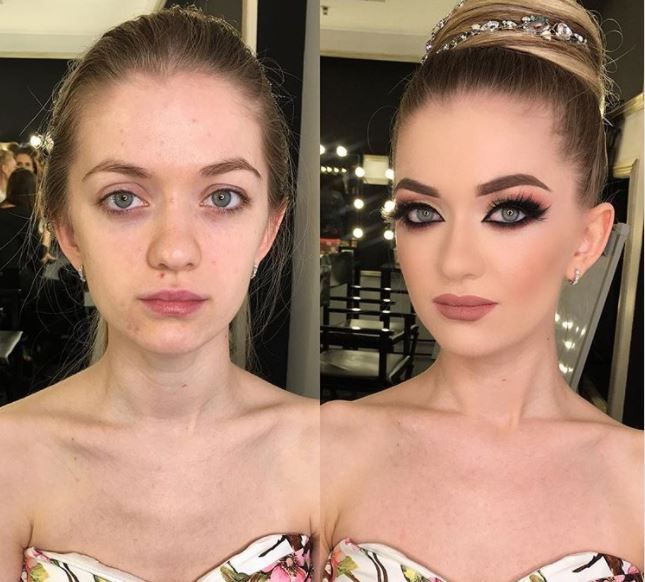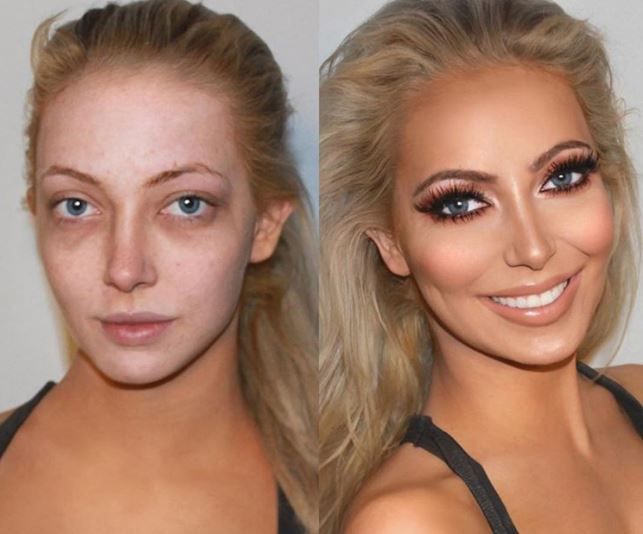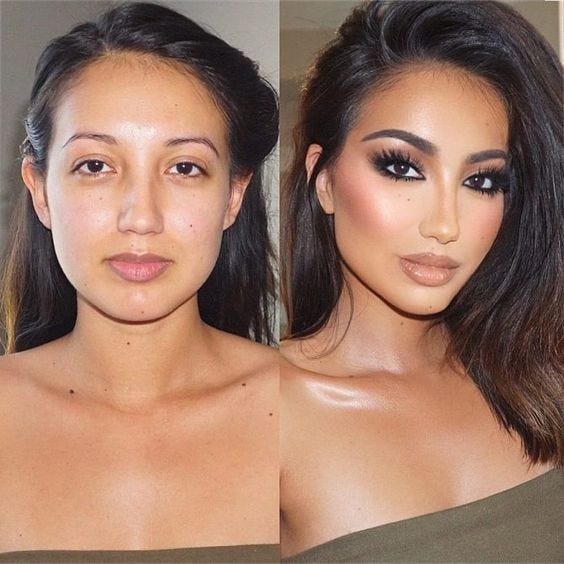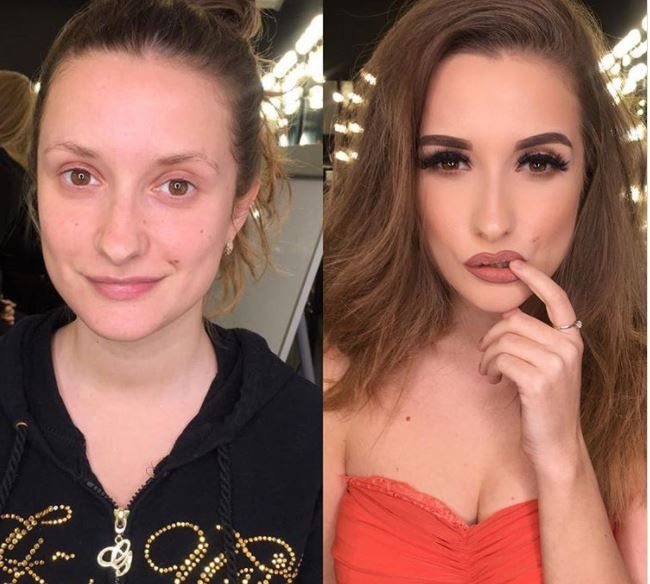The Transformative Power of Makeup Education: Unveiling the Art and Science of Beauty
Related Articles: The Transformative Power of Makeup Education: Unveiling the Art and Science of Beauty
Introduction
With great pleasure, we will explore the intriguing topic related to The Transformative Power of Makeup Education: Unveiling the Art and Science of Beauty. Let’s weave interesting information and offer fresh perspectives to the readers.
Table of Content
The Transformative Power of Makeup Education: Unveiling the Art and Science of Beauty

Makeup, beyond its aesthetic appeal, is a powerful tool for self-expression, confidence building, and even career advancement. The art of applying makeup, however, requires a deeper understanding than simply picking up a brush and swiping it across the face. It’s a skill that, when honed through proper education, can unlock a world of creative possibilities and professional opportunities.
This comprehensive guide delves into the multifaceted realm of makeup education, exploring its diverse avenues, benefits, and potential career paths. We aim to provide a clear and informative understanding of what makeup education entails, why it matters, and how it can equip individuals with the knowledge and skills necessary to succeed in the ever-evolving beauty industry.
Understanding the Landscape of Makeup Education
Makeup education encompasses a wide range of programs and courses designed to equip individuals with the knowledge, skills, and techniques needed to excel in various makeup applications, from everyday looks to high-fashion artistry and special effects.
Types of Makeup Education:
-
Formal Education:
- Cosmetology Schools: These programs offer comprehensive training in all aspects of cosmetology, including makeup artistry, hair styling, skincare, and nail care.
- Beauty Schools: These institutions focus specifically on beauty and esthetics, with a strong emphasis on makeup artistry, skincare, and other related services.
- Colleges and Universities: Some higher education institutions offer specialized programs in makeup artistry, often within departments of fashion, theatre, or film. These programs typically incorporate a theoretical foundation in makeup history, color theory, and product knowledge alongside practical application.
-
Short-Term Courses and Workshops:
- Private Makeup Academies: These institutions offer intensive, short-term courses focused on specific makeup techniques, such as bridal makeup, airbrush makeup, or special effects makeup.
- Online Courses: Digital platforms provide access to a wide array of makeup education, from beginner-friendly tutorials to advanced masterclasses taught by renowned makeup artists.
- Workshops and Masterclasses: These short-term intensive programs offer hands-on training with industry professionals, allowing students to learn specialized techniques and gain practical experience.
Benefits of Makeup Education:
- Enhanced Skills and Techniques: Makeup education provides a structured learning environment where students can develop their technical skills, from foundation application and contouring to eye shadow blending and creating dramatic looks.
- Deepened Understanding of Products and Tools: Students gain a comprehensive understanding of different makeup products, their ingredients, and application methods, allowing them to make informed choices and achieve desired results.
- Professional Network Building: Makeup education often provides opportunities to connect with fellow students, industry professionals, and potential employers, fostering valuable connections and career advancement.
- Career Advancement: Formal makeup education credentials and certifications can significantly enhance career prospects in various fields, including freelance makeup artistry, salon work, beauty retail, and media and entertainment.
- Confidence and Self-Expression: Makeup education empowers individuals to understand and enhance their natural features, boosting confidence and allowing them to express their unique style and creativity.
The Importance of Choosing the Right Makeup Education Program:
Choosing the right makeup education program is crucial for achieving desired outcomes and maximizing the investment. Factors to consider include:
- Program Focus: Determine whether the program aligns with your specific career goals and areas of interest, whether it’s bridal makeup, special effects, or fashion artistry.
- Curriculum and Instruction: Evaluate the curriculum’s comprehensiveness, including the range of techniques covered, product knowledge, and practical application exercises.
- Faculty Expertise: Ensure that the instructors are experienced professionals with a proven track record in the industry and a passion for teaching.
- Accreditation and Recognition: Choose programs accredited by reputable organizations to ensure that the education meets industry standards and enhances career prospects.
- Cost and Flexibility: Consider the program’s cost, payment options, and scheduling flexibility to ensure it fits your budget and lifestyle.
Career Paths in Makeup Artistry:
A successful makeup education can open doors to various career paths, offering diverse opportunities to apply skills and creativity.
- Freelance Makeup Artist: Freelance makeup artists work independently, providing services for weddings, events, photoshoots, and other occasions.
- Salon Makeup Artist: Salon makeup artists work within a salon setting, providing makeup services to clients on a regular basis.
- Beauty Retail: Makeup artists in beauty retail provide makeup application services, product recommendations, and customer consultations.
- Media and Entertainment: Makeup artists in the media and entertainment industry work on film sets, television productions, and fashion shows, creating looks for actors, models, and performers.
- Special Effects Makeup Artist: Special effects makeup artists specialize in creating realistic and fantastical effects for film, television, and theatre productions.
FAQs about Makeup Education:
1. What is the typical duration of a makeup education program?
The duration of makeup education programs varies depending on the type of program and the institution. Short-term courses and workshops can range from a few days to a few weeks, while formal cosmetology or beauty school programs typically last for six months to a year. College and university programs may take two to four years to complete.
2. What are the typical costs associated with makeup education?
The cost of makeup education can vary significantly based on the type of program, the institution, and the location. Short-term courses and workshops can range from a few hundred dollars to a few thousand dollars, while formal programs can cost several thousand dollars.
3. What are the essential skills needed for a successful career in makeup artistry?
Essential skills for a successful career in makeup artistry include:
- Technical Proficiency: Mastering various makeup techniques, from basic application to advanced artistry.
- Product Knowledge: Understanding different makeup products, their ingredients, and application methods.
- Color Theory: Comprehending color harmonies, skin tones, and how to create flattering looks.
- Creativity and Imagination: Developing a unique artistic vision and the ability to translate ideas into stunning makeup looks.
- Communication and Client Interaction: Effectively communicating with clients, understanding their needs, and providing personalized services.
- Professionalism and Hygiene: Maintaining a professional demeanor, adhering to industry standards, and practicing proper hygiene.
4. Are there specific certifications or licenses required for makeup artistry?
Certification and licensing requirements for makeup artistry vary depending on the location and specific career path. In some areas, a cosmetology license may be required to work in a salon setting, while others may require specific certifications for specialized services, such as airbrush makeup or special effects makeup.
5. What are the best resources for finding makeup education programs?
Resources for finding makeup education programs include:
- Online Directories: Websites dedicated to listing beauty schools, cosmetology programs, and makeup academies.
- Professional Organizations: Associations of makeup artists and cosmetologists often offer resources and information on training programs.
- Social Media: Following makeup artists and industry professionals on social media can provide insights into training programs and educational opportunities.
Tips for Success in Makeup Education:
- Set Clear Goals: Define your career aspirations and choose a program that aligns with your goals.
- Practice Regularly: Dedicate time to practicing makeup techniques outside of class to enhance your skills.
- Seek Feedback: Ask instructors and fellow students for feedback on your work to identify areas for improvement.
- Build Your Portfolio: Create a portfolio showcasing your best work to showcase your skills to potential employers.
- Network with Professionals: Attend industry events, connect with makeup artists on social media, and build relationships with professionals in the field.
Conclusion:
Makeup education is a transformative journey that empowers individuals to unlock their creative potential, enhance their skills, and pursue fulfilling careers in the exciting world of beauty. By choosing the right program, dedicating time to practice, and networking with industry professionals, aspiring makeup artists can acquire the knowledge, skills, and confidence needed to succeed in this dynamic and rewarding field. The art of makeup is a powerful tool for self-expression and artistry, and with the right education, individuals can master this skill and create a career that reflects their passion for beauty and creativity.








Closure
Thus, we hope this article has provided valuable insights into The Transformative Power of Makeup Education: Unveiling the Art and Science of Beauty. We appreciate your attention to our article. See you in our next article!